Dealing with stress
What is stress?
When we are experiencing difficult and challenging times, such as the current COVID-19 pandemic, it is normal to feel:
worried or concerned about loved ones, especially if they are at risk of illness
worried or concerned about your personal health and safety
concerned that health care services may be disrupted
socially isolated or sometimes lonely, especially when living alone
bored, tired, or lacking energy, and you may not feel as productive as usual
uncertain about the future and not be able to focus or concentrate on making plans.

We consequently experience a range of emotions, like fear, sadness, anger, numbness, helplessness, and hopelessness. These can manifest in many physical, psychological, and social signs.
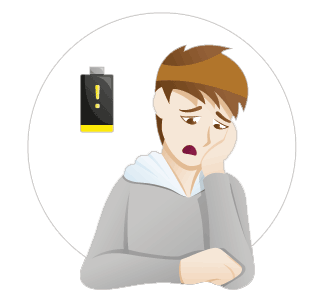
Physical
- Headaches, tremors in hands, increased heart rate
- Muscular pains/aches
- Cold sweating
- Tiredness, sleep disturbance, decreased appetite
- Gastrointestinal problems
- Persistent pain without any apparent cause, or pain above the level of what you may expect from an injury

Psychological
- Impaired concentration and decision-making, anxiety, recurrent thoughts or memories
- Forgetfulness
- Irritability
- Worry, sadness or crying, loss of pleasure from usual activities
- Tearfulness, anger
- Guilt/survivor shame
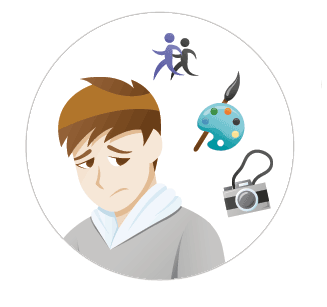
Social
- Social withdrawal
- Inability to perform day-to-day tasks
- Increased conflict with family or community members
- Inability to perform well at work/difficulties in school.
- Misuse of medicines or substances (e.g. smoking, alcohol, cannabis, etc.)
- Lack of interest in usual activities
REMEMBER!
Stress can motivate us and enhance our performance. But problems can occur if these emotions and feelings persist and start to negatively impact our life.
Negative thoughts and feelings may lead us to think about:
giving up
blaming others
judging ourselves harshly
unpleasant memories
what will happen in the future, especially what we fear
our concern for other people
When we are overcome by negative thoughts and feelings … it affects our behaviour.
We often start doing things that make our situation worse like spending too much time in bed, smoking or drinking.
For many of us, our reactions to a stressful situation change over time. However, for some of us, signs that we are struggling continue and they negatively impact how we live our daily lives, perform at work or they affect our relationships with family and friends. This is not because we are weak, or are to blame for what we are experiencing.
Rest assured that you are not alone, and many other people feel the same.
❯ NextSo, what can we do?
Strengthening social support
In general, we tend to cope better when we have friends, family members, community and mental health support groups around us. We need to think about how we might be able to strengthen our social support networks.

REMEMBER that strengthening social support can mean different things for different people. It may mean:
- Having a friend or family member listen and validate your concerns and emotions.
- Connecting with a community organization, group or agency that is providing needed and appropriate information and support.
- Seeking advice or practical help from people around you to complete a difficult task.
- Spending time with others but not necessarily talking about problems (e.g. sharing a meal).
- Listening to and helping other people (while not forgetting to take care of oneself).
By asking for other people’s support, you may feel:
- more confident and hopeful in dealing with problems
- better able to manage your problems
- less burdened by problems
- comforted by someone’s care and support, and feel that you are not alone.
There is a proverb that reflects the idea of social support, “A problem shared is a problem halved.“

"We told you a little bit about the importance of social support. Now, we can help you think and plan for a way to get some social support from someone you trust."
Plan exactly what you are going to do (e.g. call the person)
Be sure to break this plan down into small, manageable steps
Decide what day you will do this
What will you tell the person/organization?
Using reminders might be a helpful way of making sure that you complete the desired tasks. For example, using alerts on your mobile phone, matching tasks with community activities or mealtimes, or having a friend or family member keep you accountable are all excellent ways of helping you complete the tasks.
So, what can you do?
You can take actions to promote your own mental well-being. Put things into perspective. Remember that you are human after all. It is normal to experience feelings of distress, sadness, fear, confusion and anger in times of crisis, and having those feelings does not mean that you are weak or that you cannot do your job.
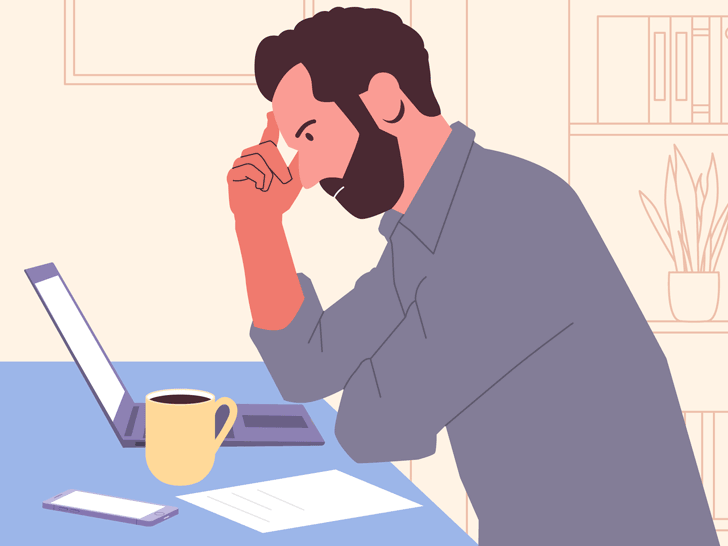
- When you have difficult thoughts and feelings about your job or your capacity to cope, try to take stock of which things are within your control, and which challenges you have no control over.

- It may also be helpful to spend some time each day recounting a few of the things you have accomplished, as it can sometimes be easy to forget what went well during times of high stress.

- Finally, remember to be kind to yourself just as you would be to a friend or colleague in the same situation.

Stay informed
- Seek information from reliable sources such as WHO and your local health authority on topics such as case identification, infection prevention and control measures or any topic relevant to your role as a responder.
- You may also wish to consider taking an online course from a trusted provider.
Avoid information overload
As you try to stay informed, remember not to overload yourself with news. A constant stream of news about the COVID-19 pandemic may leave you feeling overwhelmed and agitated.
- Try to limit your exposure to media coverage as much as possible, including limiting time spent on social media.
- Avoid sources of unverified medical information and do not listen to myths and rumours.
- Avoid looking at your phone first thing in the morning, try using an old-fashioned alarm clock instead.


Stay connected
Despite physical distancing measures, make sure you stay in touch with your support system during this crisis. It is normal to feel the urge to withdraw from social circles during stressful times but staying connected helps you cope.
- You can reach out to friends and family members via text or video chat, and join meals and social activities virtually.
- Try to exchange support with trusted colleagues at work, as many of you may be having similar experiences and reactions.
- You could try creating a formal or informal platform where you and your colleagues can share knowledge and discuss any dilemmas you are facing as they arise.
- Avoid discussing the pandemic during virtual social gatherings if you can and if people do steer the conversation around to COVID-19, you can always choose to leave the meeting or in good humour tell them that you would prefer not to discuss this during your enjoyable activity.
Know your limits
If you feel too overwhelmed and unable to cope, consider what actions you can take to relieve some of the burden at work or at home.
- If it is an option to take a break from tasks at work or home, or to take a short leave of absence from your job, speak to your supervisor or family members about it. While it is difficult to accept, staying on the job when you are stretched beyond your limits puts you and those you care for at risk.
- During the COVID-19 pandemic, it is also essential to monitor yourself for symptoms and immediately report incidents of exposure or if you suspect that you may have been infected. It may prevent you from doing your job, but it will keep those around you safe.
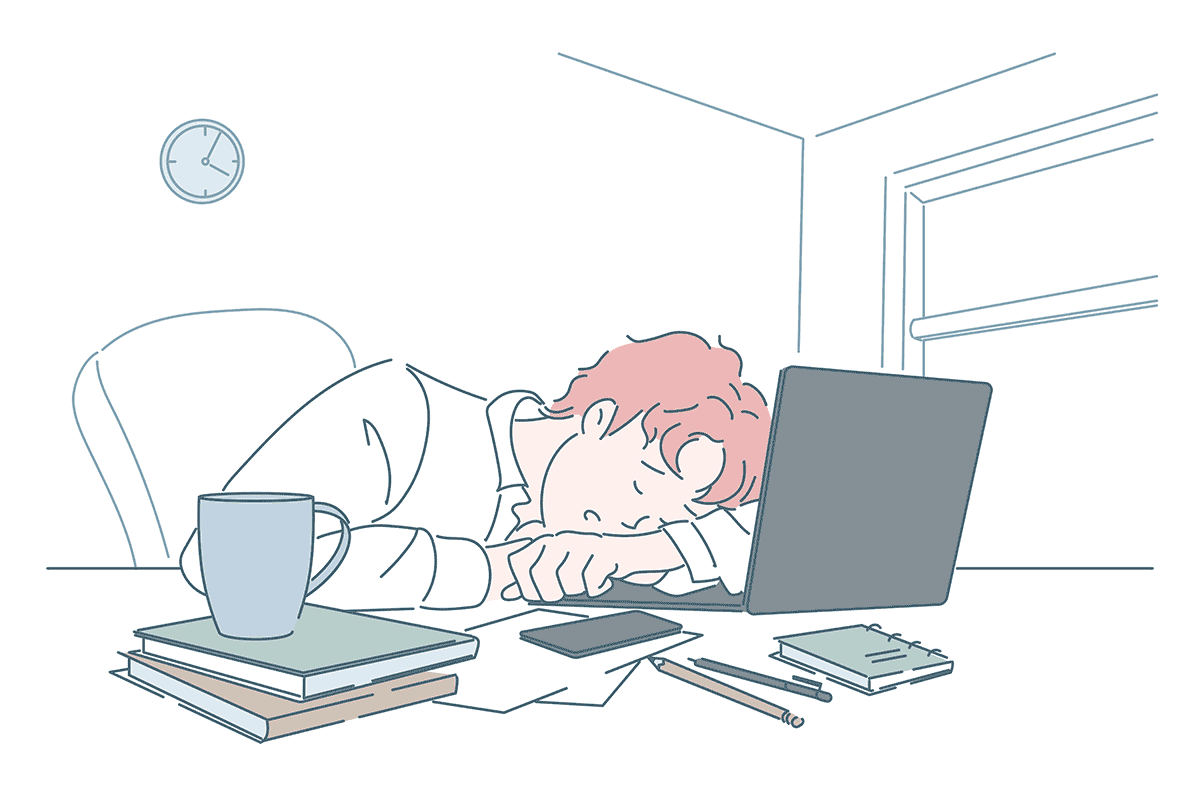

Take time for yourself
Make time to do simple activities that bring joy, comfort and boost self-esteem on a regular basis. This may include:
- reading, listening to stories or cooking.
- going for a walk, dancing or watching or participating in a sport.
- listening to music or doing craft activities.
- making a list of all the things you are grateful for (in your head or on paper).
- speaking to a friend or family member.
Maintain a healthy lifestyle
In times of crisis, a healthy lifestyle is vital to the resilience of your body and mind.

Eat a well-balanced diet and avoid skipping meals even during very busy times. Always keep healthy high-energy snacks with you, and avoid too much caffeine, sugar and junk food. Healthy foods include:
- fruits and vegetables
- pulses (or legumes)
- whole-grain cereals
- lean meats and fish
- moderate amounts of dairy food

Physical activity
Exercise can take many forms:
- walking upstairs, running, cycling, or household chores;
- stretching exercises, dancing, and yoga;
- brisk walking.

Sleep
- Turn off all devices 30 minutes before bed.
- Wake up and go to bed at around the same time each day.
- Avoid caffeine (coffee, tea and some soft drinks) in afternoons and evenings.
- Limit the use of alcohol or other substances that can affect the quality of sleep.
- Avoid daytime naps.
- Create a calm sleeping environment with a comfortable temperature and minimal noise and light, where possible.
- If you are unable to sleep get out of bed and go to another room and distract yourself for 20‒30 minutes, then return to bed.

- Stay well-hydrated.

- Do your best to rest during any downtime at work and get enough sleep between shifts as it helps you stay focused and balanced throughout the day.

- Avoid unhealthy coping behaviours such as the use of tobacco, alcohol or other substances, as they are harmful to you in the long run.

- Try your best to maintain a consistent routine as much as possible – even though that may be challenging in times of crisis
Seek professional help
Whether you are already living with a mental health condition or not, if your feelings of distress persist and it becomes difficult to cope with your daily activities at work or at home, consider seeking professional help. Remember that seeking help is not a weakness, but a sign of strength and resilience.
- Seek help from a health professional, such as your GP or a psychiatrist or therapist.
- Consider utilizing some local resources that have been developed for the COVID-19 response such as psychological support hotlines and remote counselling services.


Adhere to your treatment
If you are receiving treatment for a mental health condition, it is essential that you adhere to your treatment regimen. Remember that caring for your own mental well-being is your greatest asset in doing your job.
- Stick to your medications if you take any, and communicate with your mental health care provider about making adjustments to your regimen, if needed.
- While face-to-face psychological support may be challenging during this time, try to see if virtual counselling and psychotherapy are available.
Breathing exercise
Now, we would like to give you a breathing exercise. It takes around 5 minutes.
We are going to teach you how to breathe in a way that will relax your body and mind. It will take some practice before you really feel the benefits. You can repeat it as many times as you like.
Progressive muscle relaxation
We told you a little bit about the physical aspect of stress, now, we would like to tell you how you can improve your psychological well-being with an exercise called progressive muscle relaxation. It takes between 10 and 20 minutes.
When we are experiencing a stressful situation and feeling anxious, our muscles can tense up. During this exercise, each muscle should be tensed, but not to the point of straining your body. If you have any injuries or pain, you can skip the affected areas. Pay special attention to the feeling when you release tension in each muscle and the resulting feeling of relaxation.
Let's begin
❯ Next ❯ Next ❮ Previous ❮ PreviousMaking room—NOTICE and NAME
Now, many people say that when doing the progressive muscle relaxation routines or breathing exercises, they find it hard to let go of specific thoughts or feelings that keep coming back. This is normal. Why? Because trying to push away difficult thoughts and feelings often does not work very well. So instead, make room for them.
You can use the making room exercise as a helpful tool when you are struggling with a particular thought or feeling. It may seem a bit strange, but often, merely noticing that these thoughts and feelings are there, and recognizing them for what they are, helps us a little. Noticing and naming our difficult thoughts and feelings tends to take away their power and can lessen the burden they create. Noticing and naming also gives us the chance to take a step back and make choices about how we choose to respond.
We will practise this right now.
Dévora Kestel (Director), Russ Harris (content creation), Kennith Carwell (project coordination and management), Sanjo Ogunseye (narration), David Wilson Alessandro Mannocchi (book production).
Geneva: World Health Organization; 2020
Grounding
We understand that sometimes you may experience intensely difficult thoughts and feelings. They are so strong that they are like a mighty storm and can easily overpower you. We are going to teach you some grounding exercises to help you during these times. Grounding yourself does not make your emotional storms disappear… It just keeps you safe until the “storm” passes.
You can use the making room exercise as a helpful tool when you are struggling with a particular thought or feeling. It may seem a bit strange, but often, merely noticing that these thoughts and feelings are there, and recognizing them for what they are, helps us a little. Noticing and naming our difficult thoughts and feelings tends to take away their power and can lessen the burden they create. Noticing and naming also gives us the chance to take a step back and make choices about how we choose to respond.
REMEMBER!
Grounding is especially useful during stressful situations or experiences. You can also practise grounding when you simply have one or two minutes available, like when you are waiting for something, or before or after an activity you do every day, like washing, eating, cooking, or sleeping. If you practise during these times, you may find that boring activities become more enjoyable, and it will be easier to use grounding later in challenging situations.
We are going to do an exercise so you can see for yourself.
Grounding exercise 1
❯ Next ❯ Next ❮ Previous ❮ PreviousProblem management
Stress can reduce our ability to address practical problems. We may feel helpless or lack confidence in managing our problems, or possibly let our feelings of anxiety or stress get in the way of managing practical problems effectively.
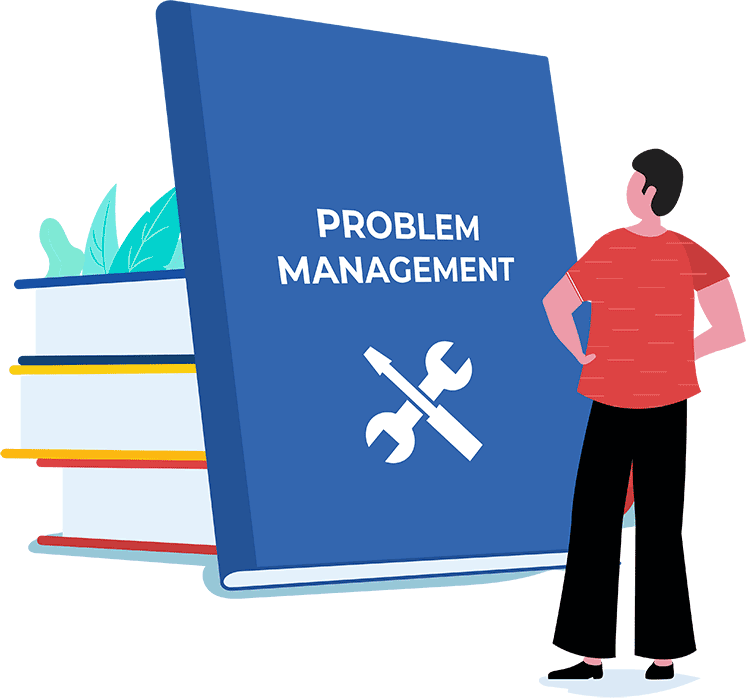
Now, we are going to focus on a strategy that will help you with the practical parts of your problem. It is called “managing problems”. We aim to help you see what elements of the problem you can or cannot influence. You might not always be able to solve the whole problem, but instead, you might be able to influence it somehow or change the way you are responding to address the problem, which can help reduce feelings of negativity.
Managing problems is a structured strategy that can help us solve and manage practical problems, so it is a tool that can be used in many different situations. Below are the steps.

List problems

Choose a problem

Define the problem
Think of ideas
Choose ideas
Think of action plans

Review
| Surmountable problems: Fight less with my husband, Improve my mood | Insurmountable problems: Find my husband a job and reduce my husband’s anger |
|---|---|
| Choose a solvable problem |
Fighting with my husband each day. |
| Define the problem | I would like to reduce the number of arguments I have with my husband. We fight every day. |
| Possible ways of managing the problem (How can I solve or reduce the problem?) |
|
| Helpful solutions |
|
| Plan (how to apply the solution you have chosen) |
Tuesday: Visit trusted friend at 10:00 am after taking the children to school. Talk with friend about fighting with my husband. Thursday: When visiting my mother, mention to her that I have been having some problems with my husband. Ask her what she would do in my situation. Saturday morning: Husband will be home. Tell him that I have been feeling very unhappy because we have been fighting a lot. Wait for his response. |
| Review (after the plan has been completed) |
Trusted friend was very supportive. Although she did not have any new advice, speaking to her helped. I felt better afterward, and my mood improved a little. We also talked about other things that gave me a break from feeling sad. My mother said that I need to speak with my husband but be understanding of his frustration and not blame him for losing his job. She helped me practise how I would talk to him, so I felt more confident. I spoke to my husband the same evening because I felt confident about approaching him. He agreed with me, but we are still not sure what to do about it. We even had two big fights this week, but this is less than before, and we discussed the problems afterward because of the previous conversation we had. |
You can also use the following approach
STOP
Define and identify the problem
- Fighting with my husband each day
THINK
Think of as many different ways as you can to manage that problem.
Try to come up with at least two or three different options.
- Do nothing.
- Tell him to try harder to find a job.
- Tell my husband that I am not happy.
- I have asked my mother for advice, and this was helpful. I also told my husband about something that was making me angry, and he changed his behaviour.
- My friends can be helpful. They always listen to me and understand me.
- I don’t know.
- Do nothing.
- Tell my husband that I am not happy.
- Talk to my friend about this.
The following questions may help: What have you done in the past to overcome problems like this?
Is there someone you can go to who can help in managing this problem (e.g., friends, loved ones or organizations)?
Do other people you know have similar problems? How have they managed?
What are the pros and cons of each of your possible solutions?
Pros: I cannot think of anything.
Cons: Nothing will change.
- Tell him to try harder to find a job
Pros: I will feel that I expressed myself.
Cons: It might make him angrier and not solve the problem.
Pros: He will know how I feel, and maybe understand that I hope to change the situation and be happy again with him.
Cons: He might become more upset.
Pros: Friend will be supportive and maybe help me think of ways to deal with the problem.
Cons: I can’t think of any.GO
Choose one option from your list of possible solutions to try out.
Make sure the option is safe for you and others if you put it into action.
You can break down your solution into practical steps.
If the solution you choose doesn’t help, you can go back to the list and try another solution.
Steps:
1. I am going to call friend tomorrow.
2. I will tell friend how I feel.
3. I will ask friend for support.
4. I will listen to what friend thinks about the problem.
5. I am going to tell my husband that I am not happy.
6. After tomorrow: Husband will be home. Tell him that I have been feeling unhappy because we are often fighting. Wait for his response.
Now, the last section on this page is about using substances. These substances include alcohol, cannabis, cocaine, amphetamine-type stimulants, inhalants, sedatives or sleeping pills, hallucinogens, and/or opioids.
Your own strengths and coping strategies
We are here to use this moment as an opportunity to remind you of something that many people tend to forget when they are under stress:
You have strengths. You have resilience. You have many coping strategies.

You have the strategies that helped you with many things in your life so far, until this very point. Remember these strategies. They can help you feel more energetic and regain a sense of control. These strategies are different tools that you can use to deal with difficulties.
You can use a paper and pencil to reflect on the following questions. They are designed to help you identify your personal coping strategies.

- Think of a time in which you were going through some difficulties. Can you remember how you were able to overcome them?
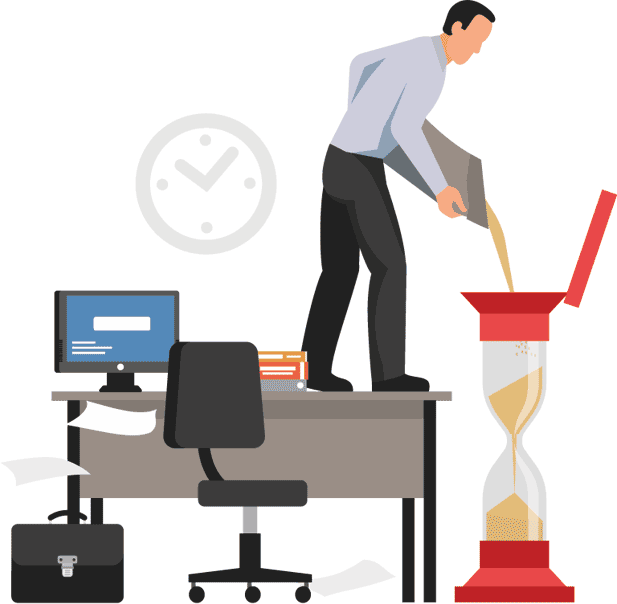
- Think about it a little more. What do you think helped you the most in such times?

- This might be a little difficult. So, if you cannot think of a particular time, think about the following: If your problem or suffering decreases, how might this be good for other areas in your life? e.g. your relationships, your work, your obligations, your sense of self.

- Visualize your day. How would your day look if your emotional well-being improved?

- To achieve this vision, how do you think you can help yourself? What kind of support or resources do you have?
Some positive coping strategies include:
Getting enough rest
Eating healthily and drinking plenty of water
Talking with family, friends or other community members
Discussing problems with someone you trust
Engaging in activities that help you relax
Doing physical exercise
Get going, keep doing!
We are now getting towards the end of the interventions to help you manage stressful and difficult situations. Remember becoming active can help you start to feel better, even though you may not feel like being active.

Starting the activity is the hardest. We assure you that many people find that once they start doing activities, it gets easier to keep going. So, now to provide you with our very last tool, we would like to invite you to do the following.
Think about the thing you used to do before you were feeling this way, what is one pleasant or enjoyable activity that you could start doing again or do more often?
Think about the thing you used to do before you were feeling this way, what is one pleasant or enjoyable activity that you could start doing again or do more often?
Think about when you were feeling better, what is one task, at home, or work, that you were regularly doing that you are no longer doing or that you do less?
Now, the idea is that you spend some time scheduling in these tasks for you to start doing them again over the next week.
- Choose a task.
- Break the task into steps.
- Choose a specific day and a time.
- Write this time down.
- Remember to start with small goals.
- Setting a reminder might be helpful.
| Time | Sunday | Monday | Tuesday | Wednesday | Thursday | Friday | Saturday |
|---|---|---|---|---|---|---|---|
| Early morning 7:00 am to 10:00 am | |||||||
| Mid-morning 10:00 am to 12:00 pm | |||||||
| Lunchtime 12:00 noon to 2:00 pm | |||||||
| Afternoon 2:00 pm to 5:00 pm | |||||||
| Evening 5:00 pm to 8:00 pm | |||||||
| Late evening 8:00 pm to 11:00 pm |

Eat a favorite meal or food

Read a book

Relax and meditate

Pray

Cook

Listen to music

Sing or play music

Dance

Do some art

Read magazines or newspapers

Write a poem, journal or story

Look at old photos

Weave or knit.
Connect

Call a friend or family member

Prepare a gift for someone

Play a game with a friend or family member on the Internet

Think of a fun activity to virtually engage in with a friend or family member
Self-care

Get out of bed at the same time you used to

Take a shower

Change your clothes

Brush your hair
Achieve

Wash clothes

Sweep the floor

Make your bed

Tidy an area in your house

Cook a meal

Mend clothes

Read mail

Help children with school work
REMEMBER!
You have the capacity to overcome the difficulties and change the way you handle them.
The more you practise the exercises, the easier they will become – don’t give up!
Do seek help from a mental health professional – we all need help sometimes.
Resources
About the virus
More information about COVID-19
Questions and answers about the virus
About coping with different types of difficulties
Mental health support during COVID-19
About family and children
Helping children cope with stress
COVID-19 and sexual and reproductive health
About working and learning at a distance
COVID-19: Recommendations to plan distance learning solutions
About working on the front line
Emergency responders’ self-care
For staff, volunteers and community workers
❯ Next ❮ Previous ❮ Previous















































































